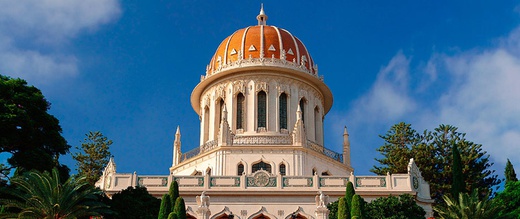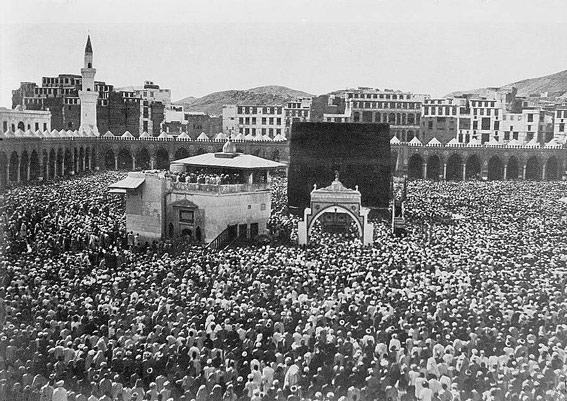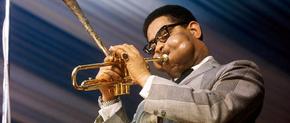The views expressed in our content reflect individual perspectives and do not represent the authoritative views of the Baha'i Faith.
The Bab set out in October 1844 for Mecca and Medina, the holy cities of Islam, to make a pilgrimage and to publicly proclaim His mission. Before leaving he gave special instructions to Mulla Husayn, asking him to proceed to Tehran, in the northern part of the country, a “city,” said the Bab, “which enshrines a Mystery of . . . transcendent holiness. . . .” Mulla Husayn immediately set out on the long journey northward, proclaiming the new religion in every city along the way.
A few people who heard the new message became believers. For the most part, they were ordinary individuals, not members of the clergy or nobility. The members of these higher classes generally treated Mulla Husayn with disdain, and in the coming years, this disdain grew to a level of hostility that led to barbaric cruelties against the followers of the Bab, who were known as Babis. In Tehran he received similar treatment at the hands of the religious leaders.
One individual, observing the rude behavior of his own religious teacher, sought out Mulla Husayn privately to investigate the new religion. In the course of this interview Mulla Husayn asked about the son of a prominent nobleman known throughout the region for humanitarian activity. Mulla Husayn requested his new friend to present a copy of some of the Bab’s writings to that distinguished person.
The moment this person read a passage from the Bab’s writings, he declared Himself a believer, and he arose to proclaim his newfound faith. From that moment forward, his life would be dedicated to the spread of the new Cause. His name was Mirza Husayn-Ali. He was from the province of Nur in northern Persia. The son of a wealthy and renowned public figure, he had a noble and ancient lineage that traced its roots to the great dynasties of Persia as well as to Abraham. His father, now deceased, had been highly regarded by the shah and the upper echelons of Persian society for his administrative prowess and for his cultural attainments.
One day Mirza Husayn-Ali’s father had a vivid dream about his son, who at the time was a small child. In that dream he saw Him swimming in a vast ocean, his body radiating light. As the boy swam through the water, his long black hair streamed out around him. Then a multitude of fishes approached Him, each catching hold of one of the hairs of His head. But the boy swam on as freely as before, unharmed, the combined effort of the fish unable to slow or deter Him. Impressed by the dream, the father sought out a local soothsayer. The man told him that the dream signified that his son was destined to arouse great turmoil among the peoples of the earth, and that many would arise and oppose Him with the intention of destroying Him. But God’s unfailing protection was with the boy, who would, singlehandedly and alone, prevail over the entire world.
As time passed, Mirza Husayn-Ali showed increasing evidence of extraordinary talents and personal qualities. His knowledge was immense from an early age, but it was not acquired through formal schooling. In addition, He possessed a remarkable degree of wisdom and spiritual perception. This was especially noticeable in relation to religious matters, although He never received more than rudimentary training in Islam, the state religion of Persia. Throughout childhood and adolescence he had encounters with Muslim clergymen, many of which have been recorded. In those days, religious discourse and leadership were the exclusive province of the clergy, who often treated all who were not similarly educated with arrogance and disdain. Witnesses to these occasions were astonished at Mirza Husayn-Ali’s ability to satisfactorily explain problems of theology that men who had dedicated their entire lives to religious study had proven incapable of unraveling. These same people were awed at His eloquence and especially at His apparently effortless mastery of Arabic, the language of the Qur’an. Competency in that language normally required years and years of rigorous study.
The brilliant qualities of his mind were matched by genuine love and compassion for all people. He was particularly sensitive to the plight of the poor and was widely known for his philanthropic efforts to relieve their sufferings. He had a keen aversion to injustice, and from early childhood expressed hopes for a transformation in society that would provide justice for all. So great was the esteem in which he was held by the local population that by the time he was a young man he was known far and wide as “The Father of the Poor.”
Like the Bab, the charm of his personality exerted a magnetic influence on all who came into contact with Mirza Husayn-Ali. He was constantly surrounded by friends and admirers from every background, high and low. This prompted envious comments from some. Others, including one Persian prime minister, commented on his outstanding character, predicting that he would rise high in the world. But the most unusual of His traits was an utter detachment from material things and worldly interests. Possessed of wealth, lineage, and ability, he could have risen to the highest spheres of power had he so chosen. Instead, he occupied himself with service to others. When Mirza Husayn-Ali was twenty-two, his father passed away, and he was offered the high government post that his father had occupied. To the surprise of many, he refused the lucrative offer. The prime minister is reported to have said, “Leave him to himself. Such a position is unworthy of him. He has some higher aim in view. I cannot understand him, but I am convinced he is destined for some lofty career. His thoughts are not like ours. Let him alone.” – ibid, p. 106, n. 1.
No one could have imagined the extraordinary destiny that was in store for Mirza Husayn-Ali. In 1844, at the age of twenty-seven, he joined the ranks of the Babis. The new movement soon grew into a religious revival that would cause unprecedented turmoil. In the turbulent years ahead, Mirza Husayn-Ali, later known by the title Baha’u’llah (meaning “The Glory of God”), would emerge as its most outstanding supporter, forfeiting position, wealth, prestige, and every hope of worldly prosperity. He would suffer all manner of humiliating afflictions, but would survive undaunted and undismayed. Exiled to another land, he would, over the course of some four decades, proclaim and establish a new worldwide religion under circumstances unparalleled in religious history.


















Comments
Sign in or create an account
Continue with Facebookor